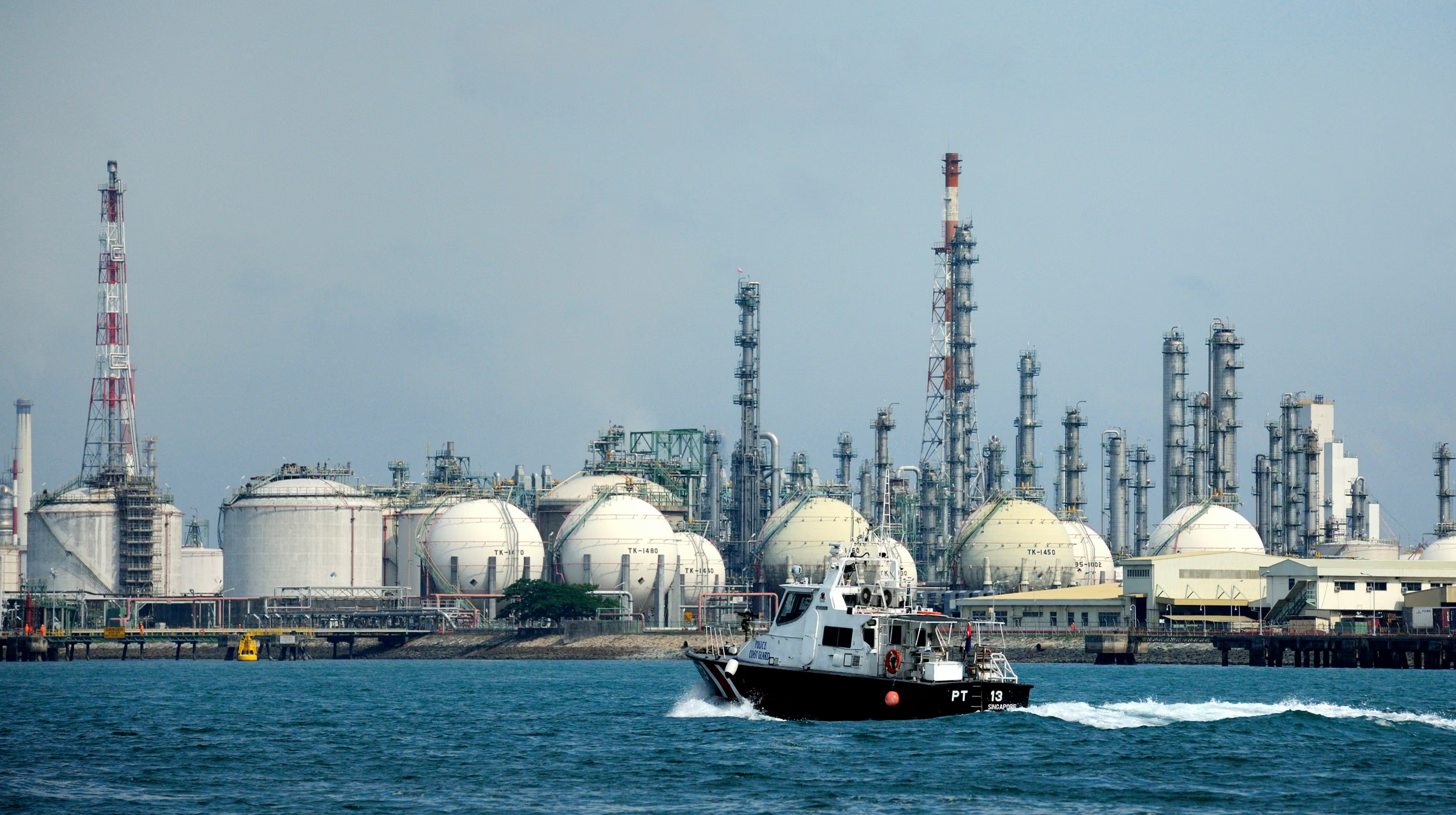“Despite ending direct purchases of Russian oil following Russia’s invasion of Ukraine, Australia has imported more than 3 million tonnes of Russian-origin petroleum products through the Singapore port, which is partly owned by Australia’s Macquarie Bank, from 2023.”, — write: www.pravda.com.ua
 Oil storage tanks on Jurong Island in Singapore. Photo: Getty Images
Oil storage tanks on Jurong Island in Singapore. Photo: Getty Images Source: The Guardian citing an analysis by the Center for Energy and Clean Air Research (CREA)
Details: After Russia’s full-scale invasion of Ukraine, Australia stopped direct purchases of fuel from the Russian Federation. However, new data suggest the existence of a loophole in government sanctions that allows the import of petroleum products of Russian origin if they have been processed in a third country. According to CREA, from 2023 the volume of such supplies to Australia exceeded 3 million tons.
Advertising:
As CREA analyst Vaibhav Raghunandan points out, this scheme indirectly contributes to an increase in oil production in Russia and, accordingly, tax revenues to the Kremlin budget.
“This is a serious loophole used by Australian buyers who, while on the right side of the law, are undoubtedly on the wrong side of ethics,” Raghunandan said.
He added that this situation not only allows the flow of Russian oil to the world markets, but also allows Australian companies to make money from it.
From January 2023, almost a quarter of all refined oil imports into Australia will come from Singapore, according to government data.
A key hub in this supply chain is Singapore’s Jurong Port Universal Terminal, which is part-owned by Australian bank Macquarie’s investment fund.
Analysts claim that about a third of Russian oil products arriving in Singapore passed through this terminal. In response to a request, a representative of Macquarie said that the majority owner of the terminal is a Singapore government structure, and its activities are subject to local and international legislation. At the same time, the representative of the bank did not provide guarantees that the terminal did not sell oil of Russian origin to Australia.
The aforementioned terminal sold oil to such large traders as Trafigura and Vitol. Vitol went on to sell them, in particular, to gas station operator Shell and Australian military contractor Viva Energy.
Representatives of Vitol, Viva Energy and Trafigura stated that their companies operate in full compliance with all applicable laws and regulations, including sanctions provisions. However, they did not provide guarantees that they did not buy or sell oil products of Russian origin.
